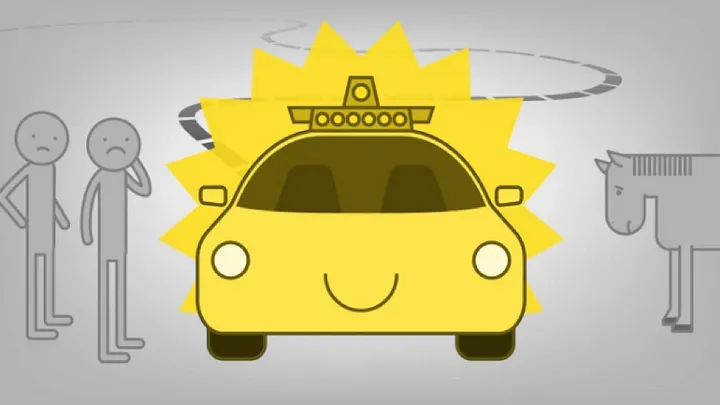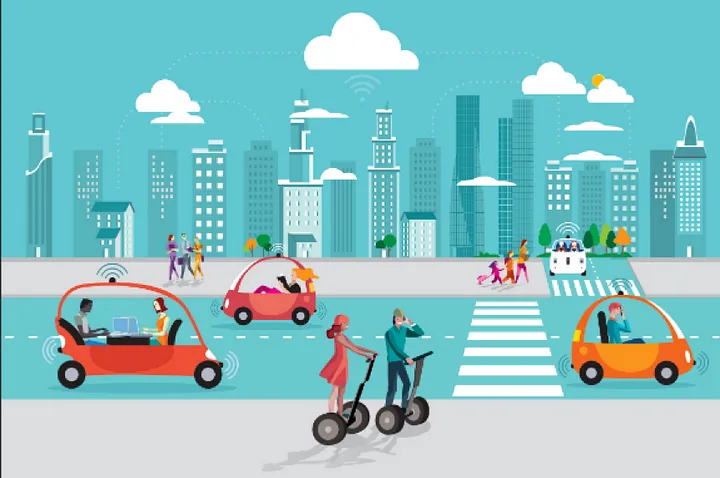There are fascinating predictions about self-driving cars’ domination on our roads. One stat suggests that by 2030, there will be approximately 27 million self-driving cars in Europe and about 21 million self-driving cars in the US. From the level of commitment shown by companies vigorously campaigning for the adoption of self-driving cars, one could see that they are mounding on many of these predictions.

One thing remains a fact; the introduction of autonomous vehicles (affiliate) to our economy would mean a never-seen-before-kind-of economic disruption that threatens to be reflected in most sectors of the economy. From credible sources, by 2030, there would be a total sale of 30 million electric cars, making up for more than 50% of the world’s electric cars market. The same trend is what would be witnessed by self-driving vehicles.
Tough competition between major auto-companies like Lyft and Uber is bringing together conventional vehicle companies (Benz, Mercedes, Audi, BMW, GM) and key technology giants (Tesla, Apple, Google) in the quest to control on-demand mobility. Many commerce-based companies and firms that are vouching for construction, trucking, trains, and buses would also feel the impact of the looming disruption that self-driving cars would usher to us.
History always suggests that those who find a way of featuring change, especially disruptive changes, stand a chance of reaping untold benefits. History also instructs us that those who don’t make it into the future, especially those resistant to change, would always wane off in time.
In the next decade, the impact of autonomous vehicles will start to be felt. It is not a question that self-driving cars would ease a lot of our activities and make life more enjoyable. There are many other things that we stand to benefit from the dawn of this nascent technology.
For example, self-driving cars would positively affect passengers’ safety, plus they would also free up time for their owners to engage in more productive tasks. This certainly means that the future spells productivity for a lot of folks.
While self-driving cars have the profound potency to invent deep value for many buyers, most industries would feel the repercussions of the emerging disruptions that this technology would factor into our economy.
The disruption of carmakers by autonomous vehicles is also a surety. But then, disruption is not a lonely occasion but rather an event that is felt simultaneously in more than one industry. Even though an industry may seem like it would not be disrupted, increasing innovation and knowledge of the industry would only be a question of when and not how the disruption would occur.
The following areas would feel the impact of self-driving cars
Parking Assistance:
In the United States, there are about one hundred and forty-four billion square feet of space available for browsing. This space shows that there is such ample space for parking.
When they finally come on our roads, autonomous vehicles will bring a lot of ease and convenience to us. For instance, after arriving at the parking lot of a shopping mall, the car’s occupants can get off, and the vehicle, through its intelligent systems, would be able to park itself without the assistance of humans.
The gross maximization of parking space that self-driving cars would bring would lead to more efficient land space usage. But then, less revenue would be generated from the sale of parking tickets in cities and most suburbs.
The Real Estate Disruption:
Because the introduction of self-driving cars would mean a more abundant parking space, it may be a cause of alarm for real estate agents. Because of the faster and more efficient transport system, the price tags of many big houses may depreciate because people would now see reasons to use suburb houses. Also, the places dedicated to human drivers in most buildings would have to be used for other functions.
Law Enforcement:
The Law enforcement section would also feel the impact of self-driving cars. Washington DC in 2014 gave out about 773 tickets daily to identify vehicles that are unlawfully speeding, making up to about $37.5 million in revenues generated. With the presence of autonomous vehicles, the generation of these revenues would be affected.
Also, with the introduction of self-driving cars, there would be minor disobedience to traffic rules, and this would also decrease the need for law enforcement agents, meaning that some people may have to be off their job!
The Insurance Sector:
Human-related errors cause most car accidents to the tone of 94%. With the introduction of self-driving cars, the number of these car accidents would be drastically reduced because most of the errors of human origin would have been eliminated.
Because accidents would be very much reduced by autonomous vehicles, the insurance sector is sure to feel the impact. Most insurance companies are issuing usage-based insurance policies (UBIs) as a direct response to this. This policy would charge car buyers based on the number of miles they drove and their safety behavior into account.
The Legal Profession:
Because the number of accidents would have been reduced with the introduction of self-driving cars, the future would witness a reduced need for injury attorneys and accident lawyers. For example, in 2005, car collisions accounted for about 35% of every civil accident trial but not so with autonomous vehicles because not of it would feature.
More than 75,000 lawyers take home their paycheck from cases related to personal injury in the US alone. This is about 6% of the total number of lawyers in the country. A reduced incidence of an accident means that many of these lawyers may be out of business.
Hotels would be quite needless:
With autonomous vehicles, fewer and fewer people would see the need to book a hotel. This is because many people would prefer to spend the night in their cars. After all, they’ll feel safer and don’t have to pay a dime. Also, more innovative interior designs of self-driving vehicles would increase comfortability making cars more desirable to spend nights.

Entertainment, Online Retail, and Media:
Auto-experts and futurists have made exciting predictions about the coming of autonomous cars, and one of them is the increasing media consumption that they would usher to us. This would also be featured in the broad transformations in the autonomous cars that we would experience.
Food and Package Delivery:
The delivery sector would witness massive gains in the wake of the legalization of self-driving vehicles. One stat from McKinsey suggests that delivery services would generate between 100–500 billion dollars every year starting from 2025 when the road becomes autonomous.
A classic example of this is the UberEats program. The program has shown how much success would be recorded from the trucking and delivery services with the agency of self-driving vehicles.
The Car Repair Industry:
With the aid of radars, sensors, and other intelligent systems, autonomous cars would essentially eliminate the numerous accident crashes that other conventional cars would have fallen into the trap. This could also mean that the auto-parts industry would be grossly affected because there would be a decreased need for new parts.
For example, in 2010 alone, the auto-repair sector made more than $76 billion from selling auto parts to replace damaged ones. The coming of autonomous cars would mean that a large chunk of this money would not be featured in the economy.
Auto Making Industry:
PwC predicted that by 2030, electronics would make up for about 50% or more of car production costs. This represents a more than 30% increase! With the purchase of Mobileye by Intel for $15.3 billion, we can feel under our skin the gradual transition from conventional car production to a more digitalized car production.
This further shows that the future of cars would have a new outlook. Also, traditional carmakers would experience tough competition from companies that use improved technology in their systems.
Media and Entertainment
With the exponential proliferation and connectivity of 5G networks- with a capability of more than 100 times the average connectivity speed of 4G networks, self-driving cars would be a massive platform for passengers and drivers to use meaningful data content at the drop of a hat.
Also, incorporating specific intelligent systems like innovative glass technology becomes a pointer to the fact that autonomous cars would become a haven for the consumption of augmented and visual reality contents at a more pleasant disposition. This would also bring untold opportunities for advertising start-ups because it would allow them to advertise their services and goods.
Conclusion
Our cities, society as a whole, and our way of living are built around the automobile. The economic disruption that self-driving cars would bring has already begun. Virtually every industry that depends on the transport sector as its lifeblood would feel the most impact, plus other sectors that do not directly depend on the transport sector.
To survive this impending disruption that this technology would bring to us, companies would have to devise strategies and advanced schemes that they’ll use to stay afloat. Government officials and auto-industry leaders are also required to develop their plans on how to make the economic disruption those autonomous cars would bring milder for the sake of job security.
There are a couple of Amazon affiliate links on emerging technologies (books) if you would like to read more on IoT, AI, etc.
If you enjoy my stories and want to support me, consider ‘buying’ me a cup of coffee at Ko-fi for $3. Alternatively, if you’d like to contribute to me on monthly basis, you can do so at either Ko-fi or Patreon.

